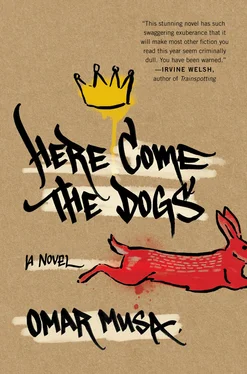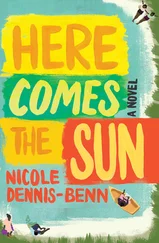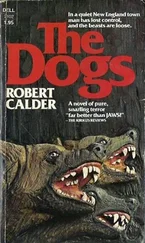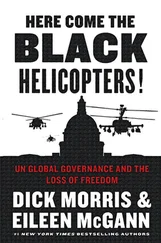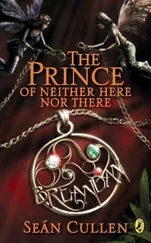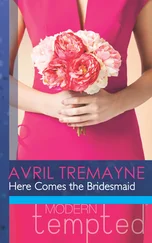Tomorrow was going to be a dangerous day.
Once he has cleaned it, he places it back in the bag and hides it on the top shelf, then visits the pharmacy to get his father’s heart medicine. When he collects Mila from school, she leaps into the passenger seat of the Hilux. She tells him about a science experiment she did in class where they put some Mentos into a Coke bottle and the chemical reaction caused the soft drink to shoot up into the sky like a fountain. Aleks doesn’t think it sounds like a very educational experiment, but wonders whether he ought to get her an iPad to help her study. He pulls up at her ballet school and, before she jumps out, he smoothes her hair back and kisses her on the forehead, then arranges her collar, which has flicked up.
‘I love you, sweetheart.’
‘Have you thought any more about the holiday, tat? ’
‘Of course. We’ll go soon, don’t worry.’
‘Promise.’ Those eyes again. She adds in an almost professional voice, ‘Could help mum get better.’
This time, he doesn’t point out that she has dropped into English, but stares straight back into her eyes and gives her hand a squeeze. ‘I promise, baby. Go on. Mrs. Hua will drop you home, all right?’
When he arrives at his parents’ flat, his father, Petar, is watching the Macedonian news. There are flags waving and a man at a podium speaking hoarsely into a microphone. Petar is a dark, lugubrious man, wearing a white singlet at a table covered in paints. A half-finished icon of St Clement is on an easel by his side, eyes staring out gravely, gold background glowing. Petar is pinching at a faded tattoo above his elbow. It reads Sloboda ily Smrt — Freedom or Death. He stands up to shake his son’s hand. His mother, Biljana, appears from the kitchen, smiling. Aleks hands her some flowers before clearing a space on the table and dividing his father’s medicine into a pillbox.
Petar Janeski had grown up in Communist Yugoslavia with a photo of Marshall Tito on his wall, like every other family. His home life in the village had been one of crushing poverty, his father a poor farmer and secret Macedonian patriot who sold vegetables in the market. One day, as they tilled the fields, his father was telling Petar folk stories and reminding him that Macedonians were descended from Philip of Macedon, and a great line of warriors and kings. Cultural and church expression were repressed; spies were everywhere. A passerby, who happened to be listening in, reported him. The family was blacklisted by the Communist Party and, as life got harder, Petar’s father became more and more harsh towards him. Petar didn’t consider his father a bad man, but he grew up knowing the discipline of knuckles and fist. The blacklisting clung to his family name like a curse, meaning he could never get a proper job, just menial labour from time to time. He dreamed of a life that would offer him more.
One day, digging up a garden for his neighbours, Petar overheard the couple talking about emigration. The Party had eased travel restrictions in the 1960s and many people were heading to Australia, where it was said you could earn great wealth. There was already a community there, and the church had sent priests to educate the Macedonians abroad, so the transition to a new country would not be so difficult. As he dug, the field in front of him changed from dark soil to sunlit sand in his mind.
Weeks later, he met a young woman, Biljana, at a dance. She too had heard of the opportunities in Australia and after several years of marriage sent Petar off to Matica, the agency for emigration in Skopje, and then to the Australian Embassy in Belgrade. After countless interviews, letters and months of waiting, he, Biljana and their boy Aleks, were winging their way from the crumbling body of Europe.
Once Aleks has divided up the pills, his father leans back, satisfied. His hands are covered in paint. How fearsome those hands had once been. Petar lights a cigarette. ‘You should quit those things,’ says Aleks, reaching for a cigarette himself. ‘Bad for your health.’
His father raises his eyebrows and says, ‘I will when you do.’ He speaks in Macedonian. Before relocating to the Town, they had lived in Wollongong. When they first moved there, Petar would have liked to learn English, but almost straight off the plane he had started working alongside other Macos in a steel factory in Port Kembla. He soon got a second job to help keep the family afloat, meaning he went years without learning a working use of English.
The Macedonian news then changes to some footage of Bitola in the summer. Petar turns to Aleks, grinning. ‘Bitola girls — good for the circulation.’
‘I heard that,’ calls Biljana from the kitchen.
‘I don’t know how women put up with us,’ says Aleks.
‘So, you know Nicko has bought his parents a new house?’ says Biljana, setting down two cups of coffee in front of the men.
‘Really? Good for him,’ says Aleks, bristling. He loves his cousin, but Nicko always seems to be two steps ahead. ‘I’ll do that for you, soon. Just have to handle my business, that’s all,’ he says, patting his mother’s hand.
‘Oh, yeah? How?’
‘Got a big job coming up. Real big.’
* * *
Once home, Aleks dreams of the blue bead on his neck.
The blue bead is obsession and power –
a frozen well,
a bullet.
He dreams it is a blue galaxy,
each gold fleck a planet.
On each planet, tableaux of moments in his life
are frozen in place like a Nativity scene.
He floats among them.
His father playing chess with Ulysses Amosa here.
His sister Jana crouched over a girl with a bloody face there.
In his dream,
he alights on the centre of one of the gold planets.
Running around him,
endlessly,
is a greyhound.
This blue bead,
forged in a time so ancient,
a workshop in Venice, by men
who were nothing but dusty whispers now,
had once been worth the soul of a man.
Isn’t that what she’d said,
all those years ago?
Before.
Before the moment everything changed.
‘Aleks. Aleks. Jimmy’s here.’ Sonya is shaking him softly in the darkness.
‘Fuck. Forgot about that. Let him in.’
Jimmy’s watching TV in the lounge room already and rises to embrace Aleks.
‘You hungry, brother?’ Aleks asks.
‘Starving,’ says Jimmy.
Sonya is already sprinkling salt and pepper on some chicken breasts on the marble kitchen top that overlooks the large lounge room. Aleks leaps up. ‘You leave that, baby. Go and sit with Jimmy. Fala. I’ll handle that.’ Aleks rubs her neck, kisses her behind the ear, then guides her to the couch. Massaging her with one hand, he flicks through channels, fussing over finding the right program. He decides on Chopper, a movie he and Jimmy have watched numerous times and quote endlessly. Once back in the kitchen, he knows what he is doing. As the chicken breasts fry in a pan, he throws together a salty salad. ‘Helps with a hangover, this one,’ he says, slicing cucumbers. ‘ Rakia ?’
‘Fuck yeh.’
‘May you walk naked in the house of your enemies, brother.’ They drain shots and Aleks smacks his lips, then exclaims, ‘Good grief!’
Jimmy laughs. Aleks has a hotchpotch vernacular, pieced together out of rap music, woggy slang, movies and Aussie colloquialisms, but Jimmy’s favourite is when he uses old-fashioned expressions, something you might hear a grandma saying — ‘dearo me’ or ‘goodness gracious’. He says it whenever he’s about to do something dangerous or bad for his health. Aleks pours another rakia.
‘What’d you do today?’ Jimmy says, eyeing him keenly. Aleks knows what Jimmy is up to. He loves to feel in touch with the criminal world without having to partake in any of it. Aleks once enjoyed telling him, but now throws him red herrings — close to but never the complete truth. Betrayal is in the kiss.
Читать дальше
